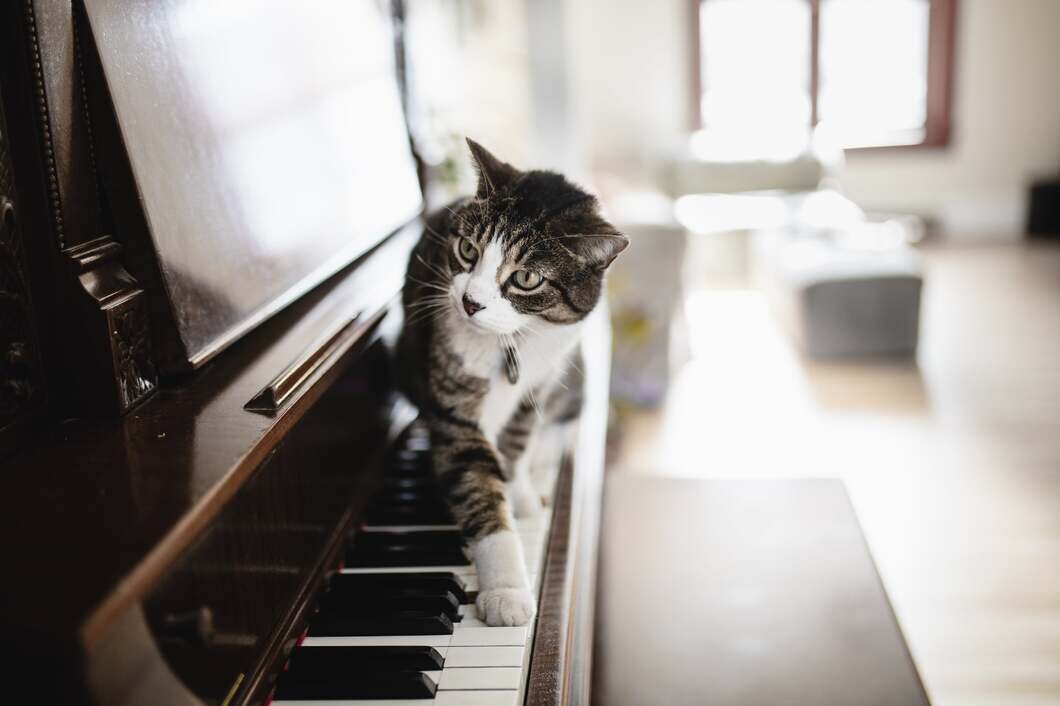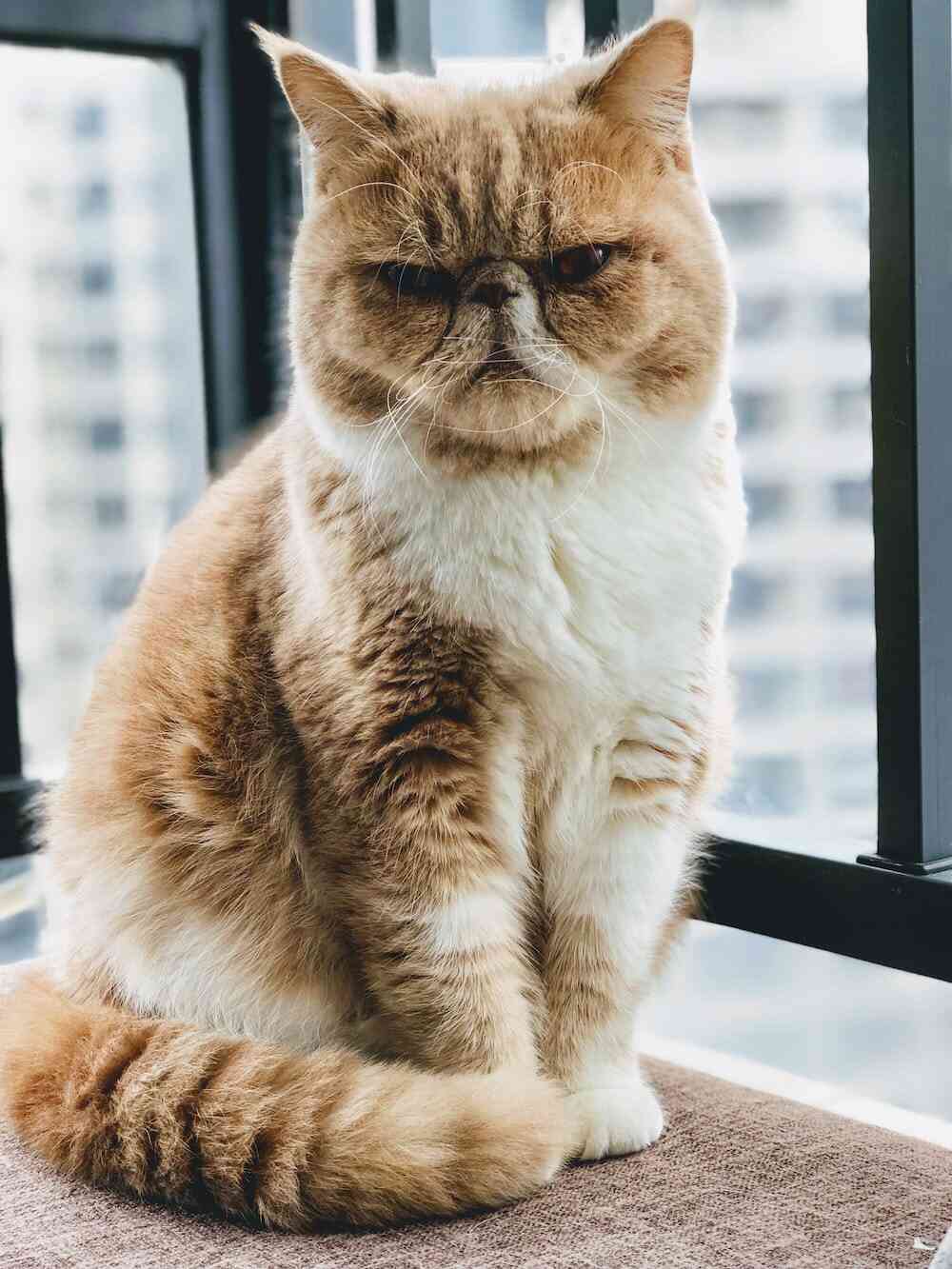Get Pet Insurance for your Cat & Dog

Zero
Documentation
Quick
Claim Process
Affordable
Premium
Terms and conditions apply*
- {{species}}
- {{indoorOutdoor}}
- {{suminsured}}
9 Effective Ways of Calming Down a Hyperactive Cat
Cats are usually calm animals who are self-sufficient and stay within themselves. However, sometimes they might exhibit an excess of activity and behave unusually. Hyperactive behaviour in cats depends on their breed, age, personality and health issues.
If your pet cat has moments of such madness and you are unable to control it, here are some best tips and tricks for calming down a hyperactive cat.
What Are the 9 Ways of Calming Down a Hyperactive Cat?

If your cat acts strangely and you are unable to identify the reason behind such behaviour, do not panic. Your first step should be to identify if your pet is suffering from any disease or a physical problem.
However, if it displays severe issues such as sudden weight loss, lack of appetite, hair loss and vomiting, you must seek help from a vet. Here are some tips you can follow to calm a hyper cat:
1. Plan Play Sessions
An ideal way to calm down your hyper cat is by draining out their pent-up energy by playing with the pet in pre-decided playing sessions. Try using pet-friendly toys, funny tennis balls, and unique LED lasers that will attract them easily. This way, you are interacting with your pet and directing its energy in a much more positive way.
You can also try some food dispensing toys as it stimulates their prey-hunting skills and controls their hyper activeness.
2. Schedule Proper Mealtimes
A hyperactive kitten or a cat will display a burst of energy when they are hungry for a long time. Additionally, they tend to sleep after having a full big meal. If they miss out on their meals, they tend to become distressed.
As a pet owner, your task is to schedule proper mealtimes. For example, their main meal should be one or two hours before going to sleep so that they can access food and do not have to hunt for it at night.
3. Check for Hyperthyroid Issues
Older cats suffer from hyperthyroidism which induces overactivity in them. This disease causes them to have an overactive thyroid gland which controls the energy levels of your pet. Therefore, your cat behaves unusually and has bursts of energy.
Cats suffering from such a disease have a lack of sleep and have reduced appetite causing stress in them as well. However, this condition can be treated if diagnosed at an earlier stage. Here are the signs of hyperthyroidism:
- Your cat will have increased urination.
- Your pet will have excessive thirst and look for water frequently.
- Most cats experience vomiting and diarrhoea if they are affected by this illness.
Try not to medicate your cat without consulting with a vet during this time.
4. Take Your Cat for a Stroll
The best way to calm down a hyper kitten is by taking your pet for a walk or a stroll. It will use their pent-up energy and help them feel much better.
Most cats enjoy going for a walk and rolling on the grass. Besides, regular walking will prevent obesity in your cat as it will be able to get some exercise and be active to run around.
5. Get Your Cat a Companion
You cannot always play around with your cat; leaving your daily responsibilities isn’t it? Well, here is when your cat requires a companion. You can get another kitten or a cat so that they can interact and play around together. However, make sure that the other cat is a pet; otherwise, they might attack each other.
6. Watch Out for Your Behaviour With the Cat
Try talking with your cat in a calm tone and take as much care as you can. Cats are very intelligent animals, and they understand your behaviour and act accordingly. You will be able to understand what your cat’s mood is by noticing their body language. If you push your stress and anxiety onto the pet, it will understand and become stressed out too.
7. Give Your Cat Its Space
A hyperactive behaviour of a cat happens mainly when it is anxious or insecure. Try not to push it towards any activity this time and allow them to be in their own space. This is because they become too sensitive during this time.
Interact with them when you are sure that they have calmed down. Allow it to stay in a room and provide a comfy blanket, litter box and enough food.
8. Try Training Your Cat
Try not to give in to your pet's unusual behaviour as it can worsen situations. Unfortunately, most people make a mistake by trying to do whatever their pets want them to do. However, this is not a solution. Train your cat and help it to adapt to its natural behaviour if it continues to pester you frequently. It will naturally calm down and adapt.
9. Clean Dirty Litter Box
If the litter box remains dirty for longer days, it can cause distress to your cat and make it hyper, as it will be unhappy. Cats like to be clean and hence, dirty litter boxes are a distress to them. So, clean the litter box twice a day while washing and sanitising it to prevent infection.
Well, now that you know the ways to lift your pet’s mood, here is how you can understand that the pet is unhappy. This will help you to act and plan accordingly.
What Is the Behaviour of a Hyperactive Cat?
Those cats which are naturally hyperactive and do not possibly have a physical or mental illness must be stimulated often. Sometimes, spraying feline pheromones inside your house can help your cat to relax. However, here is what a cat might do if it is hyperactive:
- Your cat might run around your house frantically and jump between furniture.
- It might chase other pets, animals, insects or even you and your family members.
- Your cat might try to attract attention by random hitting and mewing or by licking.
- They might mess around with the food making your interiors dirty.
- Your cat might try to bite itself or try to hurt its kittens too.
This behaviour is, however, most common in kittens but is sometimes practised by adult cats when they are too distressed.
Why Do Cats Become Hyperactive?
A hyperactive cat might show several nervous behaviours and tends to display such activity to eliminate boredom or the energy that they sustain for long hours. When pets spend longer hours at home alone, they feel irritated and hence want to move around frantically. The additional reasons for such behaviour include:
- Your cat might be alone and hungry for hours while you are not at home.
- The pet might be infected by a flea or other insects irritating them repeatedly.
- Some cats are nocturnal and are more active at night due to which they tend to act crazy that time.
- Your cat might suffer some cognitive dysfunction or senility. It means that as it ages, its brain might start functioning in a different way.
- Your cat might suffer certain skin infections or allergies, causing them to become irritated.
Different cats and kittens behave in different ways when they become hyper. Now, let us learn the ways to understand the mood of a hyper cat.
How to Understand the Mood of a Hyper Cat?

If you are a pet owner you will be able to understand the mood of your cat by noticing their body language and their certain instincts. For example, when the cat lifts its back, and you notice the lifting of its hair, it means it is angry. At this point, try not to push your cat or stroke them, as they may scratch back.
A hyper cat’s tail, eyes and ears will help you comprehend their mood. Here is how you can understand what your cat is up to:
Tails
- A high, vertical tail indicates that your cat is happy, comfortable and confident.
- When you notice that your cat’s tail is low, it indicates that your pet is fearful, distressed or anxious.
- If your cat starts twitching the end of their tail, it signifies that your cat is unhappy and stressed.
Ears
- If your cat’s ears are forward, it means that they are relaxed, alert, engaged or confident.
- If the ears of your pet are turned towards the back, it means your pet is very angry, frustrated and fearful.
Eyes
When your pet is comfortable and trusts you, you will notice they have relaxed eyes.
A cat having large and dilated pupils indicates they are happy and wants to play around.
- If they blink slowly and have dilated pupils, it means they are fearful, angry and distressed.
Other Signs That Say Your Cat Is Uneasy
If your cat is hyper, they will urinate outside the litter box making the environment dirty.
- When your pet feels unsafe or insecure, they will start finding an area to hide so that they are less visible.
Book an appointment with your vet if you suspect that these symptoms are worsening or it is followed by severe health issues.
When to See a Veterinarian?
When you are unable to control the situation, here is what you must do without delay:
Step 1: First, try to identify the behavioural changes of your cat. Look if your pet is normal as they wake up in the morning but become hyper as the day progresses.
Step 2: Recognise if they are stressing out too much and becoming extremely uneasy. If they are frustrated and mess around beyond control, they need professional help.
Step 3: If they start harming themself and cause extreme stress or anxiety, you must take them to a vet.
The above information might have taught you the ways of calming a hyperactive cat. It might seem challenging and a tough job in the beginning but you will tend to get adapted to your cat's changing moods. Try reading books and journals that describe how you can handle your pet in various ways. You can also watch videos and talk to other pet owners and learn how they handle their pets.












